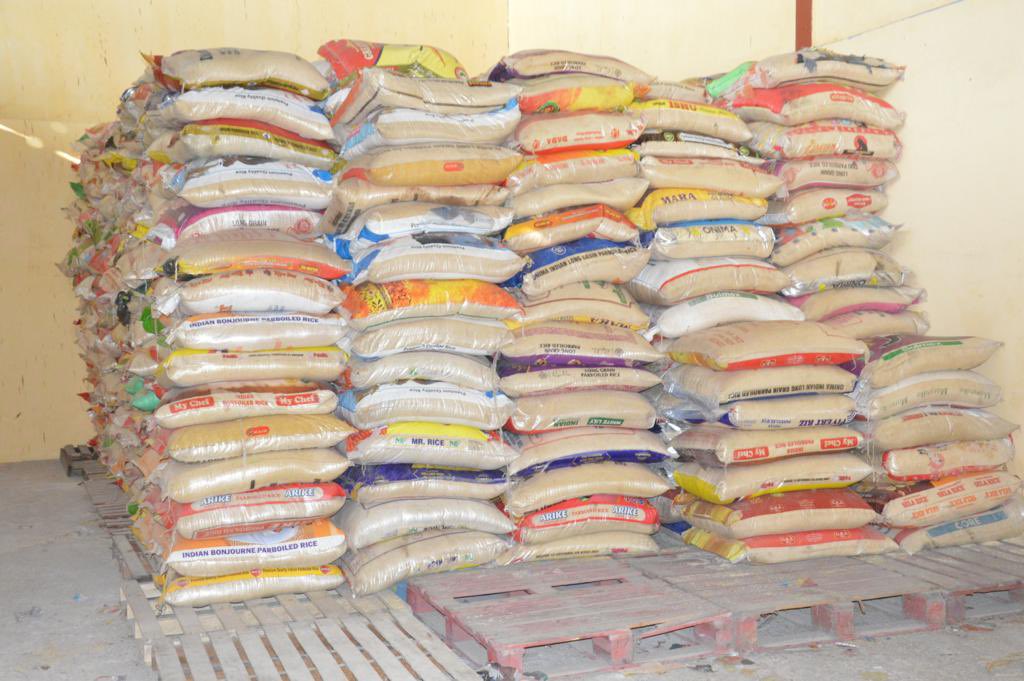The Nigeria Customs Service (NCS) says the federal government is forfeiting N188.37 billion in revenue due to the suspension of import duties on food commodities.
Bashir Adeniyi, comptroller-general (CG) of NCS, spoke on Tuesday at the second economic confidential lecture and book presentation in Abuja.
The event was themed ‘Leveraging on Effective Communication for Revenue Generation and Economic Development’.
On July 10, the federal government announced the suspension of duties, tariffs, and taxes on the importation of food staples through land and sea borders to reduce inflation.
Advertisement
On August 7, the NCS said the duty waiver on imported foods would be implemented within the next one week.
These food commodities include maize, husked brown rice, wheat, and cowpeas.
The measure introduces a 150-day duty-free import window for these food commodities, to be implemented over a period of 180 days.
Advertisement
Speaking at the event, Adeniyi said the six-month tariff suspension could result in a revenue forfeiture of approximately N188.37 billion.
This, he said, represents the government’s commitment to prioritising food security over short-term revenue goals.
“The removal of tariffs and import duties on key staples for the next six months represented a considerable sacrifice in terms of potential revenue,” the comptroller-general said.
“Based on recent trends, we estimate that the six-month tariff suspension could result in a revenue forfeiture of approximately N188.37 billion.
Advertisement
“A total import of these food items between 2020 and 2023 was more than N3.8 trillion generating more than N191 billion in custom duties, and more than N562 billion in various levies paid to the government.”
‘CNG ADOPTION TO REDUCE FOOD TRANSPORTATION COST’
Adeniyi said the compressed natural gas (CNG) initiative of President Bola Tinubu would reduce food transportation costs by approximately 60 percent.
“This could indirectly but significantly benefit food security by potentially lowering food transportation costs, making food more affordable across the country,” he said.
Advertisement
The CG also said despite government efforts to boost local food production, the rising food import bill underscores significant challenges in achieving food security and stabilising domestic prices.
Adeniyi said the service must swiftly adapt its systems and procedures to implement the tariff suspensions efficiently.
Advertisement
“The removal of tariffs is likely to lead to a surge in food imports. We must prepare for this increased volume, ensuring that our ports and border stations can handle the influx without creating bottlenecks,” he said.
“With the removal of tariffs on specific items, there’s a risk of misclassification or misdeclaration of goods. We must enhance our inspection and verification processes to prevent abuse of this policy.”
Advertisement
The comptroller-general assured that the NCS would ensure seamless clearance of the listed foods, and create special corridors to expedite their clearance.
Adeniyi also said the service will build the capacity of its personnel, and shore up its anti-smuggling measures to prevent the influx of unlisted food items.
Advertisement
Add a comment









